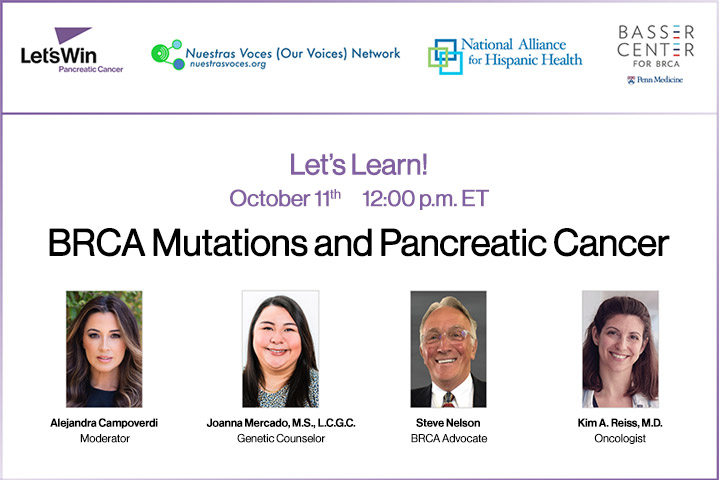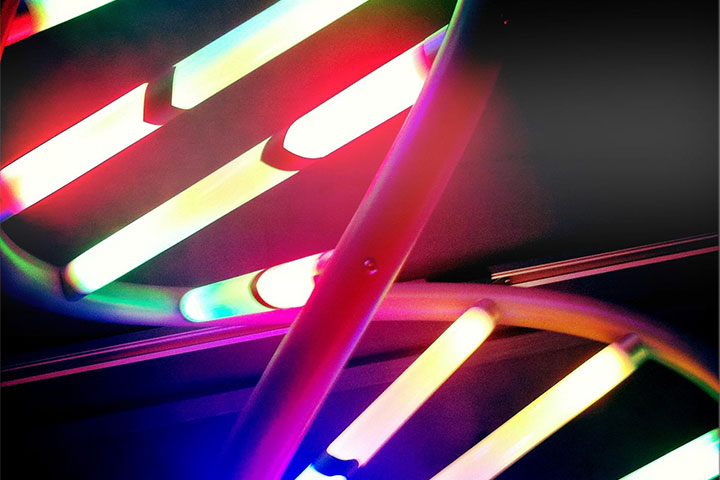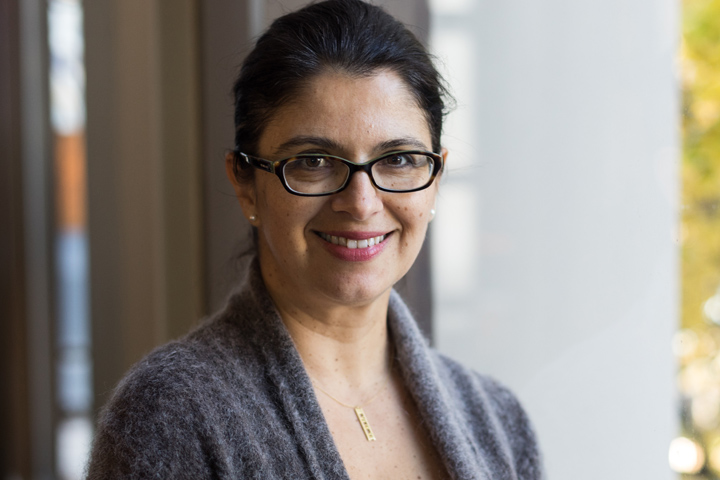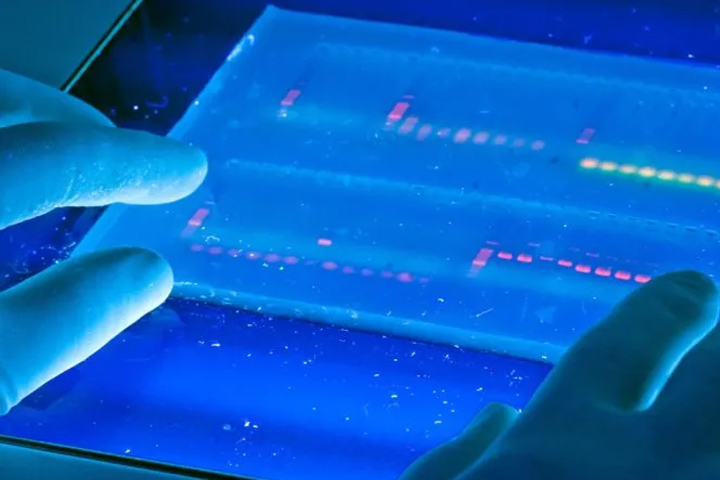Blog
22 Articles

BRCA Mutations and Pancreatic Cancer
Let’s Win, the National Alliance for Hispanic Health, and the Basser Center for BRCA teamed up to present a webinar on BRCA mutations and pancreatic cancer.

Targeted Therapy for Cancers Carrying the PALB2 Mutation
Researchers are testing a type of targeted therapy called a PARP inhibitor for cancers carrying the PALB2 mutation.

Who Should Be Screened For Pancreatic Cancer
Who should be screened for pancreatic cancer? Dr. Allyson Ocean explains how genetic mutations and family history factor into screening.

PRECEDE Trial Sets Survival Rate Goal
Dr. Raymond Wadlow explains how earlier detection of high-risk people is key the PRECEDE trial’s goal to increase pancreatic cancer survival rates.

New Gastrointestinal Screening Guidelines for High-Risk Patients
Get informed about the latest pancreatic cancer screening guidelines for high-risk patients from gasterenterologist Dr. Amitabh Chak.

New Study Aims to Reduce Recurrence Risk for Select Patients
Dr. Kim A. Reiss is leading a study of the PARP inhibitor olaparib to delay or prevent a recurrence of surgically removed pancreatic cancer.

Chemotherapy Plus Stem Cell Infusion and Vitamins for BRCA Mutated Pancreatic Cancer
A clinical trial for pancreatic cancer patients with a BRCA mutation uses a combination of chemotherapy, vitamins, and stem cells.

Searching for Potential Pancreatic Cancer Blood Biomarkers
Researchers are using blood samples to follow people considered at risk for developing pancreatic cancer in a trial looking for early detection biomarkers.

Damage as a Way to Repair Pancreatic Cancer
Dr. Talia Golan takes a closer look at the damage caused by the BRCA1/2 mutations to find a way to treat pancreatic cancer.

A Potential Role for PARP Inhibitors in Pancreatic Cancer
Dr. Michael Pishvaian leads research into the possible role of PARP inhibitors in treating pancreatic cancer patients with certain genetic mutations.

Early Detection Trial for People at Higher Risk of Pancreatic Cancer
Relatives of pancreatic cancer patients or people who carry certain mutations can participate in an early detection clinical trial.

The ABCs of Genetic Testing
There are a number of different genetic mutations that can cause familial pancreatic cancer. This article explains some of the most common ones.


